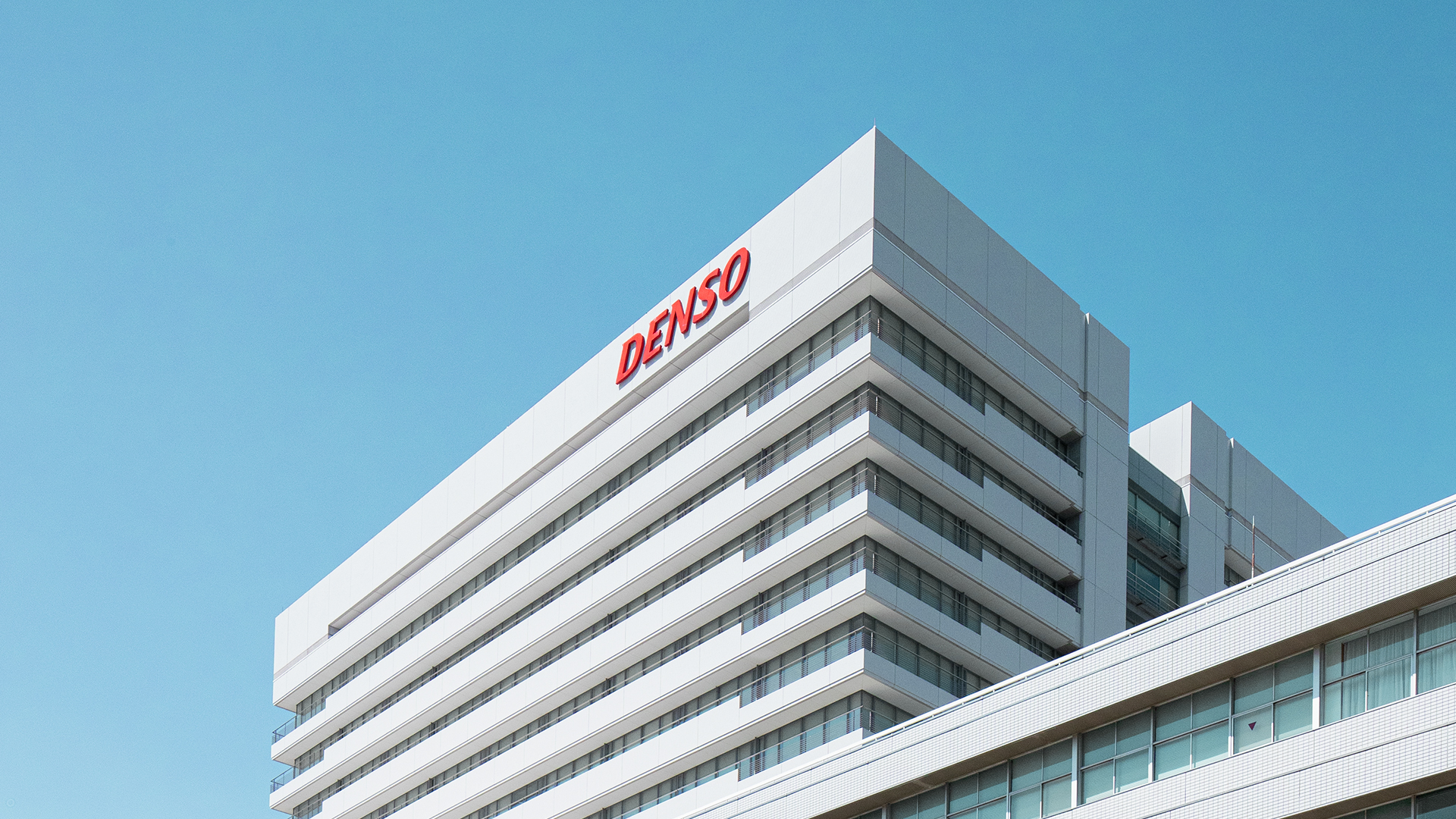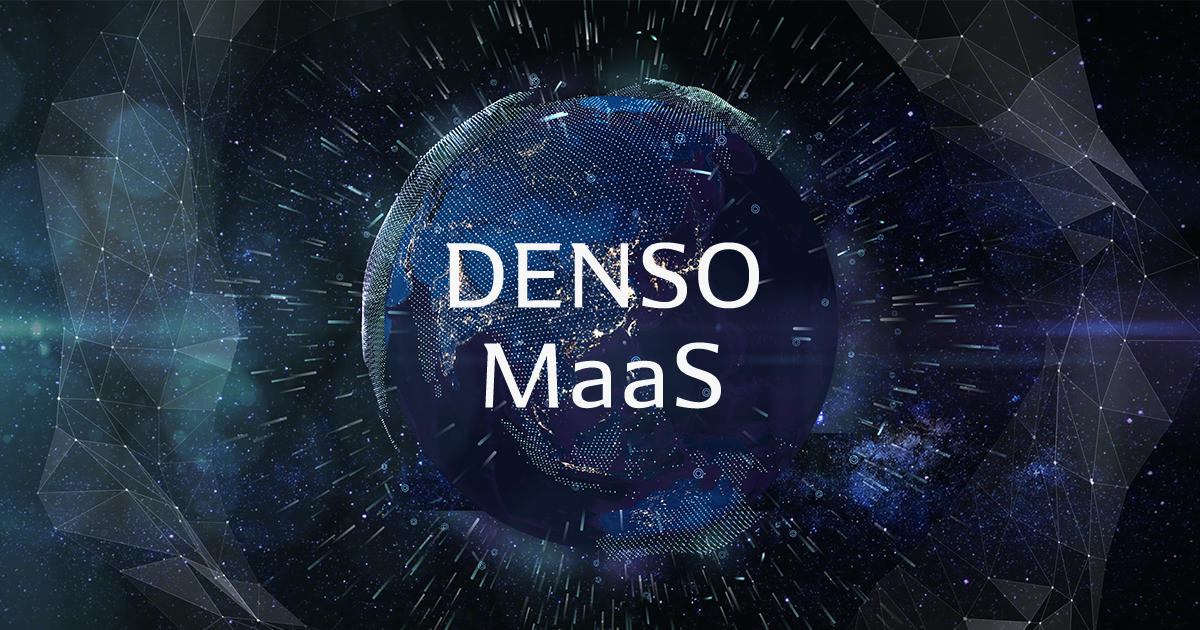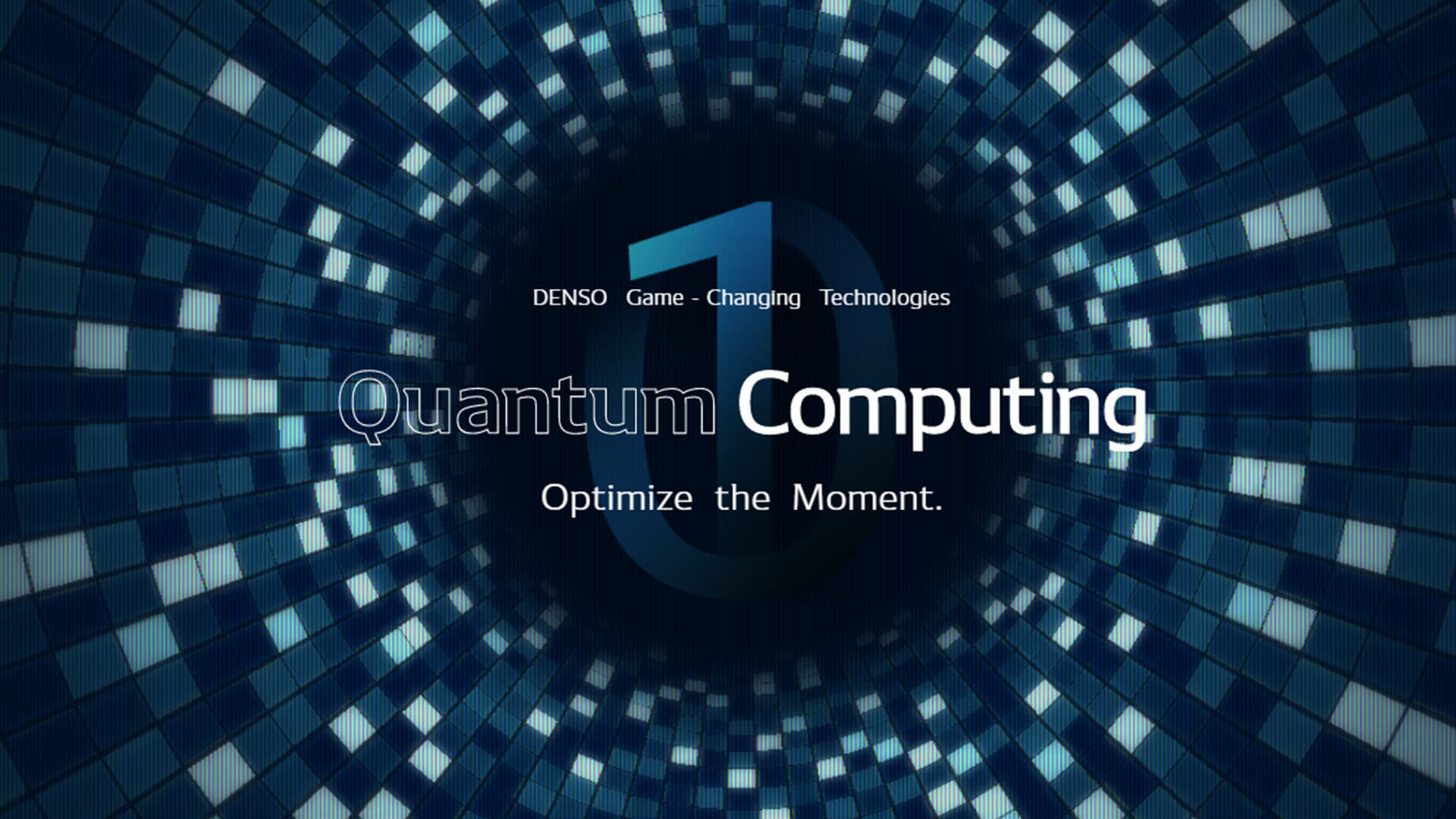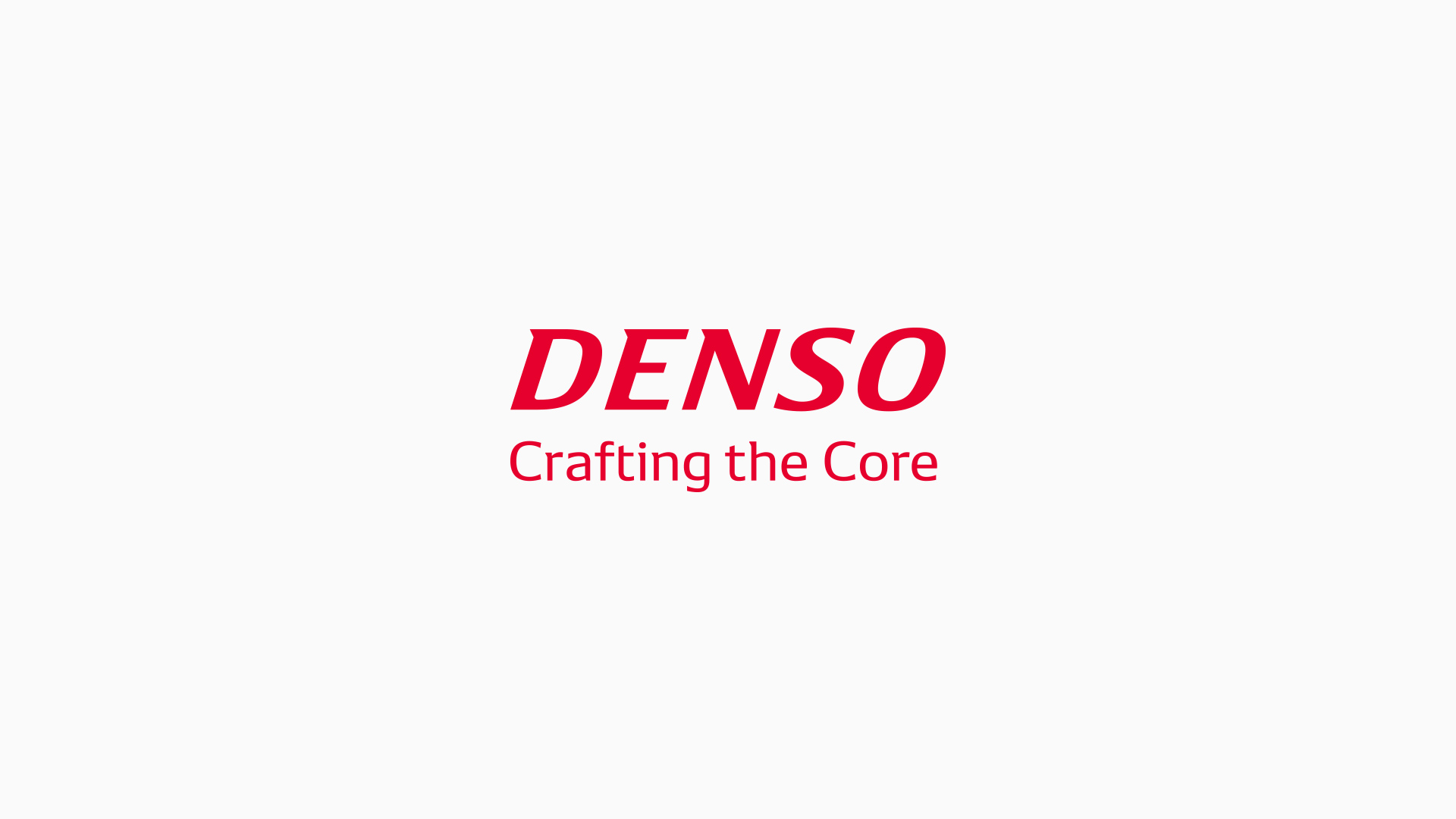Message from the Chief Financial Officer
Steadily executing our financial strategy and building on achievements to sustainably enhance corporate value amid a changing business environment
Yasushi Matsui
Executive Vice President
Representative Member of the Board
Chief Financial Officer (CFO)
Overview of Fiscal 2025 Results:
Steady Progress toward Medium-term Targets Despite Headwinds
Despite headwinds from sluggish sales in Asian markets and production cutbacks due to suspended operations at Japanese automakers, revenue in fiscal 2025 reached a record high of ¥7.1 trillion, driven by stronger sales in focus areas including electrification and safety & security products, a faster-thanexpected return on R&D spending, and yen depreciation.
Operating profit also reached a record high of ¥519.0 billion, thanks to efficiency improvements and favorable foreign exchange rates, despite increased costs associated with capacity utilization losses, higher material prices, and investments in R&D and human capital.
In fiscal 2026, DENSO will continue to steadily invest in R&D and human resources to prepare for the future, as it did in fiscal 2025, while enhancing profitability through portfolio reshuffling and further streamlining efforts. Our goal is to achieve revenue of ¥7.2 trillion and operating profit of ¥675.0 billion, in line with the targets set forth in the Mid-term Policy for 2025.
In fiscal 2026, DENSO faces possible costs of approximately ¥130.0 billion due to U.S. tariff policies.*3 We will work internally to minimize the impact, and for unavoidable costs, we will engage in considerate discussions with customers to reflect those costs in transaction prices and manage earnings accordingly. We will also monitor conditions at suppliers in terms of both costs and supply, and work in close cooperation with automakers, industry associations, and relevant government agencies to respond to changes in the business environment and help maintain and strengthen the industry’s competitiveness.
*3. Estimated impact as of the end of July 2025
Return on equity (ROE) improved significantly from 6.3% in fiscal 2024 to 8.0% in fiscal 2025, driven by both a stronger earnings structure and improvements in the capital structure, centered on shareholder returns. In fiscal 2026, we aim for ROE of 10.7%, along with our targets for revenue and profit under the Mid-term Policy for 2025.
As a result of these efforts, earnings per share (EPS) also reached a record high of ¥145 in fiscal 2025. Over the past five years, EPS has grown at an average annual rate of 29%, and we will continue striving to improve it further without resting.
Recent Share Price Trends
Although DENSO’s share price reached an all-time high on April 12, 2024, it has since softened. DENSO’s total shareholder return (TSR)* over the past year has trailed behind that of the TOPIX, underscoring the need to further bolster our efforts to enhance corporate value.
Looking ahead, we will evolve our management approach to more aggressively pursue improvements in share price and price-to-book ratio (PBR). In addition to enhancing ROE through the steady execution of our financial strategy, management will remain highly conscious of the price-to-earnings ratio (PER) as a reflection of growth expectations. We will work to transform our business portfolio into one more resilient to share price volatility specific to the automotive sector, while communicating our growth strategy in a timely and effective manner.
* TSR: Total shareholder return, the combined return from capital gains and dividends
Financial Strategy for Achieving the Mid-term Policy for 2025
DENSO aims to enhance sustainable corporate value by “resolving social issues by maximizing the value of green and peace of mind to be inspiring” and “expanding genuine equity spread over the medium to long term.” Under a management approach that is conscious of the cost of capital, management has designated ROE as its most important financial KPI. In the Mid-term Policy for 2025, we set our ROE target to over 10%, exceeding both our cost of shareholders’ equity and the socially expected minimum level of 8%, as cited by the Ito Report and other publications, in pursuit of maximizing value creation. We will achieve this target by strongly advancing our financial strategy, which is built on four pillars: (1) reinforcing the profit structure, (2) reducing low-profit assets, (3) improving the capital structure, and (4) engaging in dialogue with markets.
The Mid-term Policy for 2025 also declares our commitment to creating social value by achieving carbon neutrality and eliminating traffic accident fatalities. The following sections explain our efforts to simultaneously address social issues and achieve sustainable business growth, structured around the four pillars of our financial strategy.
1. Reinforce Profit Structure
(1) Creating Medium- to Long-term Corporate Value through ROIC-minded Management
DENSO’s ROIC-minded management is not aimed solely at improving short-term financial indicators, but rather at enhancing corporate value over the medium to long term. Since fiscal 2022, we have actively utilized ROIC to steadily improve management decisions, such as enhancing profitability through portfolio realignment and optimizing resource allocation by business area, with a view to sustainable growth.
We believe that widespread understanding and practice of ROIC management, from executives to individual employees, will lead to further advancement of this mindset. To foster understanding and agreement among employees, we use the ROIC tree to visualize the relationship between ROIC as a management KPI and individual improvement activities. We also promote the entrenchment of an ROIC mindset through a multifaceted approach, including regular in-house training and the introduction of ROIC improvement case studies in our global internal newsletters. Furthermore, we incorporate ROIC into the performance-linked compensation framework for Board members and disclose it as one of our key KPI targets, thereby clarifying senior management’s commitment.
We will continue to entrench and advance ROIC-minded management to enhance capital efficiency and create sustainable corporate value.
(2) Addressing Social Challenges, Three Growth Drivers
DENSO has achieved growth by creating social value through the principles of green and peace of mind and inspiring stakeholders while doing so. Today, the value expected of DENSO extends beyond the automotive domain to addressing broader social issues. In response to these changes, based on our corporate philosophy, we are eyeing the three growth drivers of evolving mobility, strengthening fundamental technologies, and creating new value, with the aim of achieving both sustainable social value creation and business growth.
First, for evolving mobility, we position electrification and ADAS as our top priorities, aligning our philosophy of green and peace of mind with sustainable growth. In electrification, as automakers increasingly diversify beyond BEVs to include HEVs, PHEVs, and FCEVs, DENSO is promoting differentiation through a broad product lineup and its ability to flexibly make technologydriven proposals. In the area of ADAS, we aim to strengthen our competitiveness further by launching next-generation products and enhancing collaboration on human–machine interfaces (HMI) and infrastructure, thereby accelerating adoption, expanding use cases, and ultimately contributing to the goal of zero traffic fatalities.
Next, under strengthening fundamental technologies, we are focusing on both semiconductors and software, in response to advances in electrification and intelligence. In the semiconductor field, we are working to bridge the automotive and semiconductor industries, and advancing the development of power semiconductors and SoCs as a leading company in mobility semiconductors. In the software field, we are enhancing our development capabilities to support software-defined vehicles (SDVs) and strengthening partnerships with tech companies to increase vehicle value.
Furthermore, with creating new value, we are expanding beyond mobility into new fields such as energy, food and agriculture (AgTech), factory automation (FA), and solutions for a circular economy through the precision dismantling of vehicles and their recycling, thereby contributing to broader social issues beyond the mobility domain. To transform our business portfolio and achieve sustainable growth, it is essential to pursue partnerships, including M&As, rather than relying solely on in-house development. We have assembled cross-functional task forces for both mobility and non-mobility focus areas, and are advancing the formulation and execution of our partner strategy. The full acquisition of Axia Vegetable Seeds B.V. in the non-mobility domain in fiscal 2026 is one such successful example of these M&A initiatives. We are similarly exploring M&A opportunities in areas such as in-vehicle systems and semiconductors. In evaluating investments for future collaborations, we have introduced a rigorous decision-making process and evaluation criteria that assess the qualitative and quantitative suitability of M&A deals, aiming to maximize strategic relevance and returns while avoiding overvaluation.
(3) Business Model Transformation for Sustainable Growth
In parallel with transforming the business portfolio by focusing on the three growth drivers, DENSO is also advancing business model reforms to adapt to changes in the external environment and business landscape, with the goal of achieving sustainable growth.
First, in response to changes in external business conditions, such as inflation-driven increases in parts, materials and energy costs, in addition to wage hikes, we are building a framework to appropriately reflect cost fluctuations in transaction prices, with the aim of strengthening the competitiveness of the entire supply chain and realizing a circular economy. As a Tier 1 supplier, DENSO occupies a central position in the supply chain, engaging directly with a wide range of suppliers and automakers. We proactively and thoroughly assess supplier conditions, sincerely reflect those conditions in transaction pricing, and considerately communicate with customers to promote appropriate price adjustments. In addition, we share our initiatives through industry bodies, such as the Japan Auto Parts Industries Association, with efforts to contribute to fairer transactions and enhanced competitiveness across the industry.
In response to changes in business content, we provide technological and supply capabilities that enhance benefits for customers as a way of providing value, and by quantitatively demonstrating this value, we aim to earn appropriate recognition and strengthen competitiveness for both our customers and DENSO.
In the software domain, for example, there is a growing shift toward business models in which software, once embedded within ECUs, is now sold as a stand-alone product. To respond to this shift, we are promoting a value-based pricing approach in which software transaction prices are determined based on the value delivered to customers rather than development hours. Additionally, for custom software development, we are creating a system that clarifies deliverables and the value provided at each development milestone, enabling us to recover costs before final completion. This approach accelerates the investment cycle and supports further business growth. In the internal combustion engine business, de-emphasis and discontinuation activities are proceeding as planned, while also recognizing that the business may continue in importance longer than our initial expectations. Even with this uncertain outlook, we aim to fulfill our role in supporting automotive manufacturing while ensuring profitability, and are engaging in constructive dialogue with customers toward introducing a new pricing structure that enables price revisions in line with volume fluctuations.
(4) Optimizing Capital and R&D Investments with an Eye on the Future
The strategic and efficient allocation of resources is essential to achieving both sustainable growth and a solid earnings foundation. DENSO optimally allocates resources to capital investment and R&D to further enhance Monozukuri and its technological advantages.
In capital investment, we are expanding investments in electrification and semiconductors based on our business portfolio realignment strategy, while appropriately controlling investments related to internal combustion engines, ensuring disciplined allocation with capital efficiency in mind. We are also continuously working to strengthen the foundations of our manufacturing operations by improving safety and quality, as well as enhancing productivity through automation and digital technologies, in a bid to maintain and reinforce our robust production system.
In R&D, we plan to invest ¥660.0 billion in fiscal 2026, up approximately ¥40.0 billion from the previous fiscal year, to build a top-tier development structure in the industry. For our three strategic focus areas, green (e.g., electrification and carbon neutrality), peace of mind (e.g., ADAS), and fundamental technologies (e.g., semiconductors and software), we used backcasting to formulate a technology development road map that aligns long-term social needs with our technological seeds, outlining a path to developing the core technologies of the future. Building on this road map, our executive team, led by the CTO, reviews and flexibly updates our core projects and advanced development themes each year, based on the latest technology trends. This ensures the precise allocation of resources to breakthrough technologies that will drive future competitiveness, while introducing KPI management such as ROI to realize an R&D framework capable of delivering world-class technologies to support the next generation of DENSO.
Furthermore, we are enhancing both competitiveness and profitability by improving development efficiency through the use of AI, clearly communicating our value proposition to customers, and accelerating the recovery cycle for mass production development costs.
2. Reduce Low-Profit Assets
To operate our assets more efficiently, we assess appropriate levels based on the nature of each asset and continue to reduce low-profit assets.
(1) Reducing Cash on Hand
We have worked to minimize funds required for day-to-day business operations (regular operating funds) and to resolve regional imbalances in liquidity through our Global Cash Management System (GCMS).
As a result of improved daily cash management, our cash on hand in fiscal 2025, including both regular operating funds and contingency reserves, was broadly in line with our fiscal 2026 target of one month of sales.
* Going forward, we will continue to carefully assess capital deployment and utilize cash efficiently. * Under the GCMS, funds appear on financial statements as deposits by the lending company and borrowings at the borrowing company, resulting in both being recorded as such, though they represent internal Group funds. The stated level of cash on hand excludes the effects of GCMS accounting and the amount related to the share buyback tender offer announced in June 2025.
(2) Reducing Cross-Shareholdings
DENSO’s basic policy is not to hold cross-shareholdings unless a clear rationale for holding them can be demonstrated, and it has been steadily reducing cross-shareholdings. Following the secondary offering of our shares in fiscal 2024, we accelerated reductions of shareholdings in the Toyota Group as well, resulting in a record-high disposal amount of ¥438.5 billion in fiscal 2025. The number of companies in which DENSO owns shares has also declined from 44 companies as of the end of March 2019 to 13 as of the end of March 2025.
In fiscal 2026, DENSO will maintain the same pace of reductions, and expects to generate over ¥380.0 billion in cash through the sale of shares in Renesas Electronics Corporation in May and Toyota Industries Corporation as announced in June. Once the sale of Toyota Industries Corporation shares is completed, DENSO will no longer hold any shares in auto parts manufacturers belonging to the Toyota Group. We will continue to accelerate reductions without exception, and reinvest the cash generated into strategic growth initiatives to enhance corporate value.
(3) Optimizing Inventories
We have broken down inventories into the three categories of temporary inventories, strategic inventories, and standard inventories, and track each accordingly. Temporary inventories refer to those held in response to logistics disruptions and other external factors. Strategic inventories are those held to hedge against natural disasters and various other risks. Standard inventories are those held for use in production activities under normal circumstances.
In fiscal 2025, by newly deploying inventory monitoring tools and accelerating our management cycles, we reduced standard inventories by the equivalent of 0.04 months of revenue compared to the previous fiscal year. We also worked to maintain appropriate levels of strategic inventories based on part types and regions to ensure a stable supply for our customers.
In fiscal 2026, while continuing to maintain optimal levels of strategic inventories, we aim to further reduce standard inventories by aligning global inventory standards on a part number basis.
3. Improve Capital Structure
We seek to reduce capital costs while maintaining a balance between safety and efficiency, and to diversify funding sources, utilize borrowings, and issue proactive shareholder returns in order to create corporate value. In these ways, we will improve our capital structure.
For fiscal 2026, we target an equity ratio of 50% or more. We believe that this is a level that will allow us to maintain a credit score that enables fundraising even during an economic crisis.
(1) Diversifying Funding Sources and Utilizing Borrowings
DENSO prepares for future investments in growth domains, new businesses, M&As, and business alliances, by diversifying funding sources through such means as utilizing bank loans, domestic corporate bonds, and foreign-denominated funds via overseas corporate bonds. Through such efforts, we are able to maintain a stable funding platform.
Going forward, we will seek to further improve capital efficiency by actively utilizing borrowings and bonds while maintaining a high degree of financial health.
(2) Shareholder Return Policy
DENSO aims to realize and further enhance total shareholder return (TSR) that exceeds the cost of shareholders’ equity steadily over the long term by increasing both dividends (income gain) and share price (capital gain).
The Company’s dividend policy targets a continuous increase in dividend on equity (DOE: Dividends ÷ Shareholders’ equity), starting from a base level of 3.0%. In fiscal 2025, DOE rose by 0.2 percentage point year on year, to 3.5%. Since fiscal 2022, when management established DOE as a financial target, the Company has raised it every year.
DENSO’s basic policy on share buybacks is to conduct them flexibly based on comparisons with its targeted capital structure and theoretical share price. In fiscal 2025, in addition to this policy, management announced a ¥450.0 billion buyback of the Company’s shares on the open market, the maximum amount feasible relative to liquidity, to remove any concerns about supply–demand imbalances stemming from the sale of DENSO’s shares by existing shareholders, including financial institutions. The open market share buyback period lasts until October 2025. DENSO plans to acquire the approximately ¥250.0 billion remaining during fiscal 2026. In addition, given Toyota Industries Corporation’s stated intention to sell its shareholdings in DENSO, and taking into account the impact of this on market supply–demand dynamics and economic rationale, the Company announced a tender offer for up to ¥357.8 billion of its shares. As a result, total share repurchases in fiscal 2026 look poised to reach a record high of approximately ¥610.0 billion.
Through these initiatives to enhance stable, long-term shareholder returns, we aim to deliver a TSR that exceeds our cost of shareholders’ equity while curbing capital accumulation and enhancing corporate value.
(3) Cash Allocation
DENSO has steadily reinforced its profit structure through ROIC-minded management. As a result, we have generated a total of ¥1.7 trillion in cash flows from operating activities over the three-year period from fiscal 2021 to fiscal 2023, even amid the COVID-19 pandemic and a worsening external operating environment that included semiconductor shortages. Over the next three-year period starting from fiscal 2024, we will aim to generate ¥3.0 trillion or more in cash through the further reshuffling of our business portfolio and the accelerated reduction of low-profit assets.
On the investment side, we apply hurdle rates to capital expenditures and quantitatively assess the economics of each project to ensure disciplined investment decisions. We are also considering growth investments, such as M&As and strategic alliances, in priority growth areas to accelerate the transformation of our business portfolio. For initiatives deemed essential to business growth and the realization of our corporate philosophy, we will flexibly execute such projects using debt financing to promote both business expansion and capital structure optimization.
We will also seek to strengthen stable, long-term shareholder returns through continuous increases in dividend levels and the proactive acquisition of treasury stock. We will comprehensively consider the scale of such acquisitions by taking into account our targeted capital structure and theoretical share price as well as the scale of potential growth investments. Through these initiatives, we will strive to maximize ROE and enhance corporate value on an ongoing basis.
4. Engage in Dialogue with Markets
DENSO is communicating information to investors and analysts in a timely and appropriate manner and advancing dialogue through efforts by corporate officers. Through these activities, we aim to reduce information gaps with capital markets and expand our equity spread by reducing the cost of shareholders’ equity.
In fiscal 2025, we held approximately 300 meetings with a total of around 2,180 institutional investors in Japan and overseas, utilizing online meetings and other formats. We fed back the insights gained through these engagements to formal internal committees and incorporated them into various initiatives, including management policy decisions and reductions in crossshareholdings. In keeping with the spirit of our founding, we have consistently pursued sustainability-oriented management that responds to the needs of the times. We are currently reviewing our material issues and developing new KPIs to guide future priority initiatives; and to further enhance the effectiveness of sustainability management, we established in fiscal 2026 the Sustainability Meeting as a formal decision-making body. As CFO and chair of the Sustainability Meeting, I will lead efforts to strengthen and implement true sustainability management by ensuring that resolving social issues and driving business growth are not viewed as trade-offs.
We believe that quantitatively linking investments in nonfinancial capital to financial value is essential for accurately assessing our medium- to long-term business growth potential and advancing sustainability management. We share this information in our Integrated Report and on our website from multiple perspectives. By effectively communicating our strengths and business strategies to a broad shareholder base and gaining the understanding of market participants, we will make management decisions that are more attuned to the expectations of society and focused on long-term growth.
Published in fiscal 2025, DENSO Integrated Report 2024 received top honors with the Grand Prize at the Fourth NIKKEI Integrated Report Award; it was also selected for inclusion in the Excellent Integrated Reports and Most-improved Integrated Reports categories by the Government Pension Investment Fund (GPIF)’s asset managers entrusted with domestic equity investment. Additionally, we are working to enhance employee awareness of corporate value by actively utilizing our integrated report in-house.
Moving ahead, we will reflect the various opinions we receive through dialogue with markets in our efforts to enhance the quality of our management.





























